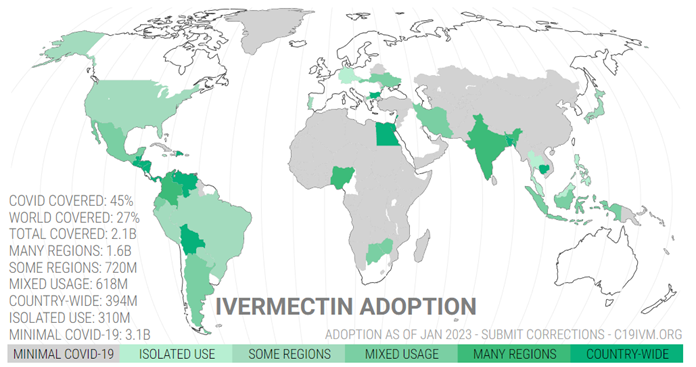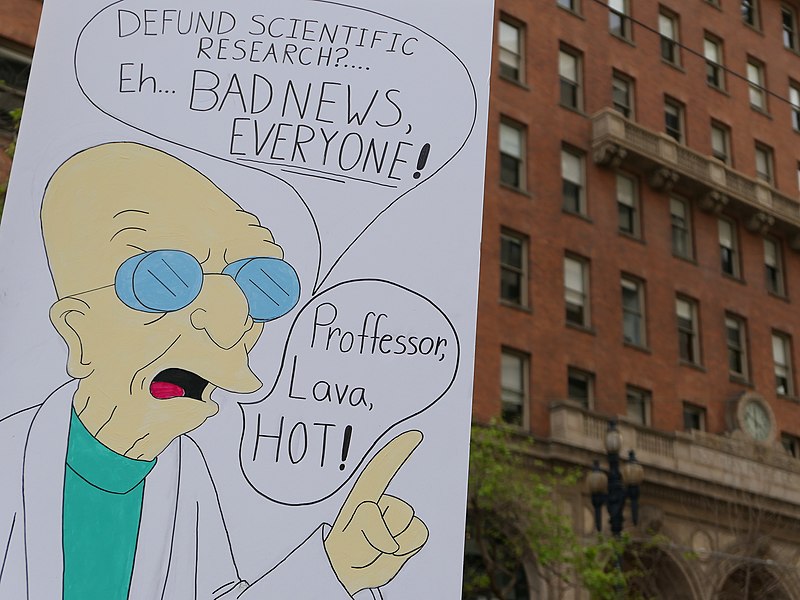
Estimated reading time: 5 minutes
The Ivermectin craze
The anti-parasitic drug Ivermectin has been preached as a remedy for COVID-19 since the early pandemic, particularly in Latin America.
Alarmingly, this misinformation is spreading like SARS-CoV-2, the virus that causes COVID-19 (See Figure 1).
But this is based on false premises, or rather, flawed scientific results that have been removed from the academic journals.
In the scientific community, results and conclusions from experimental studies are first reviewed by experts in the field.
This is necessary to assess the quality of the manuscript before journal publication.
This is called journal peer review and, although this process is fundamental for accurate science, it takes time.
Because of this, the standard is for scientists to share their research as a preprint before peer review and publication.
This allows authors to share their research publicly faster with the caveat that the information cannot be fully trusted.
As we are all aware, one of the many things we lacked during the early pandemic days was time.
Lack of time and preparedness resulted in papers being published a faster rate (or fast-tracked) before thorough review. Like a cuisine plate served before tasting and ensuring all ingredients are of high quality and not expired.
Here I provide further details on papers that contributed to the Ivermectin misinformation hype, giving false hope to both the scientific community and the public.

Bad science and false remedies
The excitement of using Ivermectin against COVID-19 began with the results of an in vitro experiment.
The scientific paper published in early April by Australian researchers reported that Ivermectin inhibits the replication of SARS-CoV-2 in vitro.
The issue here is that in vitro means done in cells detached from the body. The effect in the full organism, in humans, is not truly known.
Around the same time, a pre-print was posted in the SSRN repository. This clinical study was done to analyze the impact of Ivermectin in human patients.
This study was done by Sapan Desai, founder of the Surgical Outcomes Collaborative ( Surgisphere Corporation), and colleagues.
They had also published a paper about hydroxychloroquine that was retracted because the raw data used could not be validated.
Similarly, their pre-print about Ivermectin was also retracted due to concerns of statistical analyses and the integrity of the data.
Unfortunately, even if the paper was removed, the damage was done.
Policy decisions were made in Latin America without scientific evidence.

More papers taken out
Another retracted study was the pilot trial published in Toxicology Reports. This was authored by Henrique Pott-Junior and colleagues from both Brazilian and American institutions in March 2021.
A pilot trial is a small-scale trial done before a main trial or larger study of patients.
Results from only 32 patients showed a supposed reduction in SARS-CoV-2 viral load within 7 days of Ivermectin treatment in patients with mild clinical symptoms of COVID-19.
Viral load is the amount of viral particles in the blood of the infected person.
However, as the journal mentions, this paper was retracted at the request of Professor Lawrence H. Lash, the Founding Editor, based on unclear and unreliable findings.
The preprint in Research Square by Dr. Ahmed Elgazzar and colleagues was one of the largest in the early pandemic.
As Eduardo Lopez-Medina, a Colombian pediatrician, told Nature News on August 2021, he was “shocked, as everyone in the scientific community probably was” when the flawed preprint paper stating that Ivermectin reduces COVID-19 death was retracted.
He added how this was “one of the first papers that led everyone to get into the idea Ivermectin worked”.
This study claimed that Ivermectin reduced COVID-19 death and length of hospital stay but was retracted due to concerns of potential “data fabrication, plagiarism, and ethical breaches” as further explained in GRFTR News.
Unfortunately, this was one of the largest studies included in a meta-analysis, an analysis of multiple research studies to come to an overall conclusion in the field, performed by Andrew Hill and colleagues, that led to an erroneous conclusion and retraction of the meta-analysis paper.
Unreliable data and interpretations
As we further read from the retracted study found in the Open Forum Infectious Disease journal, because both authors and publishers learned that they had included the study using Surgisphere data, which had led to erroneous statistical analyses about the true effect of Ivermectin, the original meta-analysis was retracted and replaced with a corrected analysis excluding the retracted studies.
The subsequent statistical results showed that Ivermectin did not have a significant effect on survival or hospitalizations nor a significant effect of Ivermectin on time to clinical recovery or binary clinical recovery.
After this process, which must have been hellish for the affected scientists, Hill and colleagues also published a journal article addressing the potential bias and medical fraud over Ivermectin.
In their paper, they performed a subgroup meta-analysis to investigate the effects of stratifying by trial quality on the varying results of Ivermectin.
Their results suggest that the significant effect of Ivermectin on patient survival was based on largely poor-quality studies, including some retracted papers mention in here.
Take-home message
In summary, the hype around Ivermectin is based on unreliable data from retracted scientific studies. unfortunately this misinformation has led to people taking ivermectin for their symptoms.
Then, the million dollar question remains, what do peer-reviewed and validated scientific studies show about using Ivermectin for COVID-19? This is the focus of part II of this blog series.


You’re so awesome! I do not think I’ve read anything like this before.
So good to discover somebody with original thoughts on this topic.
Really.. thanks for starting this up. This web site is one thing
that is needed on the web, someone with a bit of originality!
Simply desire to say your article is as surprising. The clearness in your
post is just spectacular and i could assume you are an expert on this subject.
Well with your permission allow me to grab your RSS feed to keep updated with forthcoming post.
Thanks a million and please continue the gratifying work.
Hi Natassia, thanks to you! Please do. My goal is to publish more content soon.
I all the time used to study article in news papers but now as
I am a user of net therefore from now I am using net for posts,
thanks to web.
Very good article. I’m going through many of these issues as well..
Usually I do not learn article on blogs, but I wish to say that this write-up very forced me to take a look at and do it!
Your writing style has been amazed me. Thanks, quite nice article.
I am in fact pleased to read this webpage posts which consists of
tons of helpful information, thanks for providing such statistics.